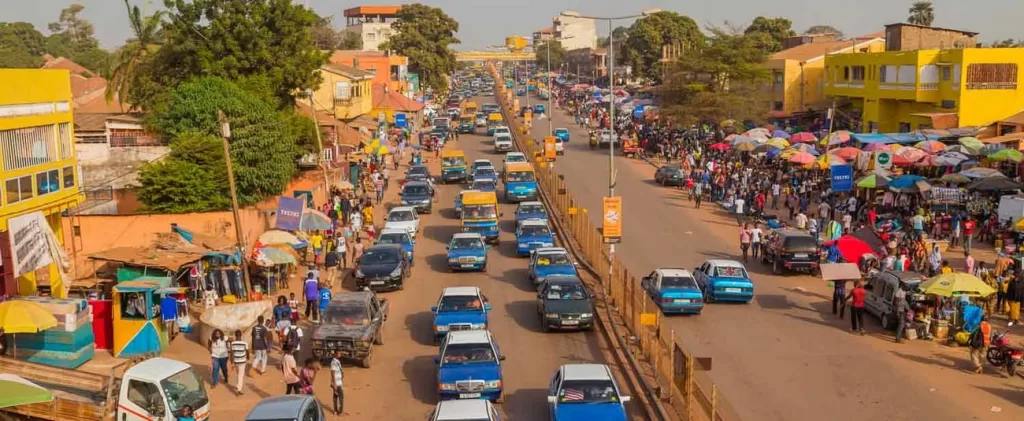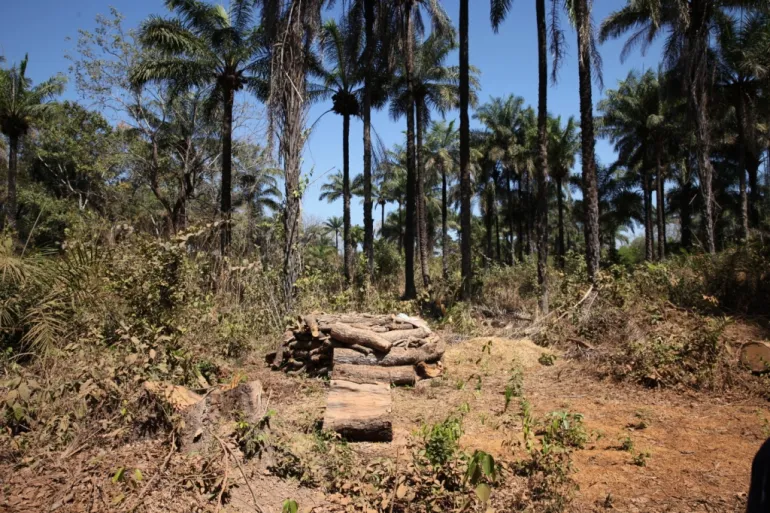Guinea-Bissau Country Report

Guinea-Bissau, located in West Africa, is known for its diverse culture, vibrant music, and scenic coastlines. The country’s capital is Bissau. Guinea-Bissau’s economy relies heavily on agriculture, with cashew nuts being a major export crop. However, the country faces significant challenges, including political instability, poverty, and weak governance. Guinea-Bissau has experienced numerous coups and political crises since gaining independence from Portugal in 1973. The political landscape is characterized by frequent changes in leadership and ongoing power struggles between political factions and the military. Despite its natural beauty and cultural richness, Guinea-Bissau continues to struggle with development issues, including limited access to healthcare, education, and infrastructure. International support and efforts to promote stability and governance reforms are crucial for Guinea-Bissau’s progress and prosperity.
Last updated: September 29, 2022
Security
Guinea-Bissau faces significant security challenges, primarily stemming from political instability, organized crime, and drug trafficking. The country has experienced numerous coups, political assassinations, and military interventions, leading to a volatile security environment. Weak governance and corruption within security forces exacerbate these challenges, contributing to widespread impunity and lawlessness. Guinea-Bissau’s porous borders and coastal waters also make it vulnerable to transnational crime, including drug smuggling and human trafficking. Efforts to address security concerns are hampered by limited resources and capacity, as well as ongoing political tensions. International support and cooperation are essential in combating organized crime and promoting stability in Guinea-Bissau.
Last updated: April 25, 2022
Infrastructure

Guinea-Bissau’s infrastructure is underdeveloped and faces significant challenges. The road network, while improving in recent years, remains inadequate, especially outside urban areas. Access to electricity and clean water is limited, with rural communities often lacking basic services. The country’s healthcare and education systems suffer from a lack of investment and resources, resulting in inadequate facilities and services. Guinea-Bissau’s ports and airports are also in need of modernization to facilitate trade and travel.
Additionally, political instability and governance issues hinder infrastructure development and maintenance efforts. Despite these challenges, there are ongoing initiatives to improve infrastructure, including road construction projects and investments in energy and water supply. However, significant investments and international assistance are needed to address Guinea-Bissau’s infrastructure deficiencies and support sustainable development.
Last updated: April 3, 2023
Environment

Guinea-Bissau boasts diverse natural landscapes, including mangrove forests, savannas, and coastal ecosystems, teeming with biodiversity. However, the country’s environment faces significant threats from deforestation, soil erosion, and habitat destruction due to unsustainable agricultural practices and logging. Guinea-Bissau is also vulnerable to climate change impacts, such as rising sea levels and extreme weather events, which pose risks to coastal communities and ecosystems. Additionally, illegal wildlife trade and poaching further endanger the country’s unique flora and fauna. Efforts to address these environmental challenges include conservation initiatives, reforestation projects, and sustainable land management practices. International cooperation and partnerships are crucial in promoting environmental protection and resilience in Guinea-Bissau. Despite these efforts, ongoing vigilance and action are needed to safeguard Guinea-Bissau’s natural heritage for future generations.
Last updated: March 14, 2022
Health and Medical
Guinea-Bissau’s healthcare system faces significant challenges, including limited access to medical services, inadequate infrastructure, and shortages of medical personnel and supplies.
The country struggles with high rates of infectious diseases such as malaria and tuberculosis, while maternal and child health indicators remain poor. Access to clean water and sanitation facilities is also limited, contributing to the spread of waterborne diseases. Efforts to improve healthcare delivery and infrastructure are ongoing, but significant investments and international support are needed to address the systemic challenges facing Guinea-Bissau’s healthcare sector.
Last updated: February 24, 2022
Political
Guinea-Bissau’s political landscape is characterized by instability and frequent changes in leadership. The country has experienced numerous coups, political assassinations, and military interventions since gaining independence from Portugal in 1973. Weak governance, corruption, and power struggles between political factions and the military have hindered democratic consolidation and socio-economic development. Despite periodic elections, political tensions persist, and the country’s democratic institutions remain fragile. International support and efforts to promote stability and governance reforms are crucial for Guinea-Bissau’s progress and prosperity.
Last updated: March 25, 2022















